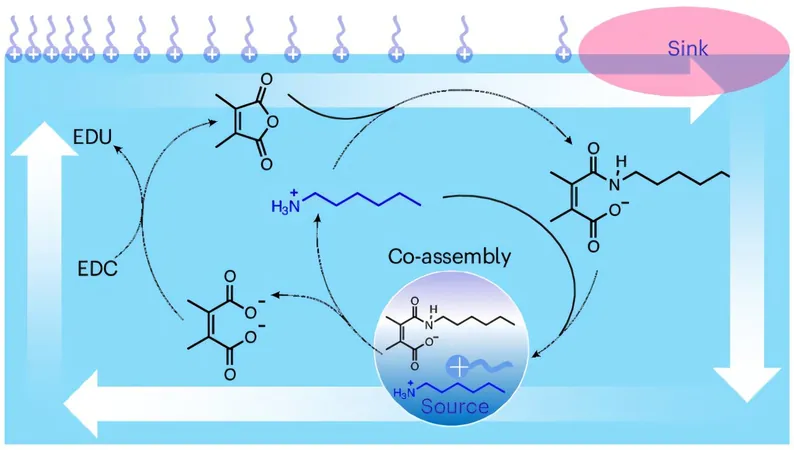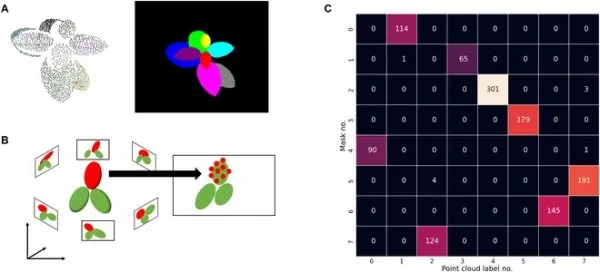
Shocking New Study Reveals Cannabis May Aggravate Brain Deficits in Young Adults at Risk of Psychosis!
2024-11-20
Author: Charlotte
Groundbreaking Study from McGill University
A groundbreaking study from McGill University has unveiled alarming findings about the effects of cannabis on young adults at risk of psychosis. The research highlights that individuals within this demographic exhibit reduced brain connectivity, a concerning deficit that appears to be exacerbated by cannabis use. This discovery could significantly influence future psychosis treatments, targeting symptoms that existing medications often overlook.
Research Methodology
In this pioneering study, researchers employed advanced brain scanning technology to analyze the synaptic density—essentially the connections between neurons that facilitate brain communication—of 49 participants aged between 16 and 30. The group included both individuals experiencing recent psychotic symptoms and those identified as at high risk for developing such conditions. The results, recently published in JAMA Psychiatry, demonstrated a notable decrease in synaptic density among those at risk when compared to a healthy control group.
Insights from Researchers
Dr. Romina Mizrahi, a senior author of the study and professor in McGill’s Department of Psychiatry, emphasized the implications of their findings: “Not every cannabis user will develop psychosis, but for some, the risks are perilously high. Our research elucidates why this is the case.” She elaborated that cannabis appears to interfere with the brain's natural mechanisms of refining and pruning synapses—an essential process for healthy brain maturation.
Symptoms Associated with Reduced Synaptic Density
One striking connection made in the study is that lower synaptic density correlates with symptoms such as social withdrawal and lack of motivation, which the researchers described as particularly challenging to address with current treatment options. "While existing medications primarily focus on alleviating hallucinations, they fail to address the underlying issues that disrupt social interactions, academic performance, and overall quality of life," explained Belen Blasco, a PhD student at McGill involved in the research.
Implications of the Study
The implications of this study are profound, especially considering that cannabis is already known to be a significant risk factor for developing psychotic disorders, which can lead to schizophrenia. What makes this research particularly noteworthy is that it marks the first time structural changes in the brains of individuals at high risk have been measured in real-time, providing critical insights into the relationship between cannabis use and psychosis.
Future Research Directions
Looking ahead, the research team plans to investigate whether the brain changes they observed could potentially serve as early indicators for the development of psychosis. This could facilitate timely interventions, offering hope for those at risk to receive help before conditions escalate.
Study Background and Support
Conducted at the Douglas Mental Health University Institute and McGill University’s Montreal Neurological Institute-Hospital, this illuminating study was supported by the Canadian Institute of Health Research and sets the stage for future breakthroughs in treating psychosis, especially among vulnerable young individuals. The conversation about cannabis's effects is more important now than ever, and it could reshape our understanding of mental health intervention strategies!









 Brasil (PT)
Brasil (PT)
 Canada (EN)
Canada (EN)
 Chile (ES)
Chile (ES)
 España (ES)
España (ES)
 France (FR)
France (FR)
 Hong Kong (EN)
Hong Kong (EN)
 Italia (IT)
Italia (IT)
 日本 (JA)
日本 (JA)
 Magyarország (HU)
Magyarország (HU)
 Norge (NO)
Norge (NO)
 Polska (PL)
Polska (PL)
 Schweiz (DE)
Schweiz (DE)
 Singapore (EN)
Singapore (EN)
 Sverige (SV)
Sverige (SV)
 Suomi (FI)
Suomi (FI)
 Türkiye (TR)
Türkiye (TR)